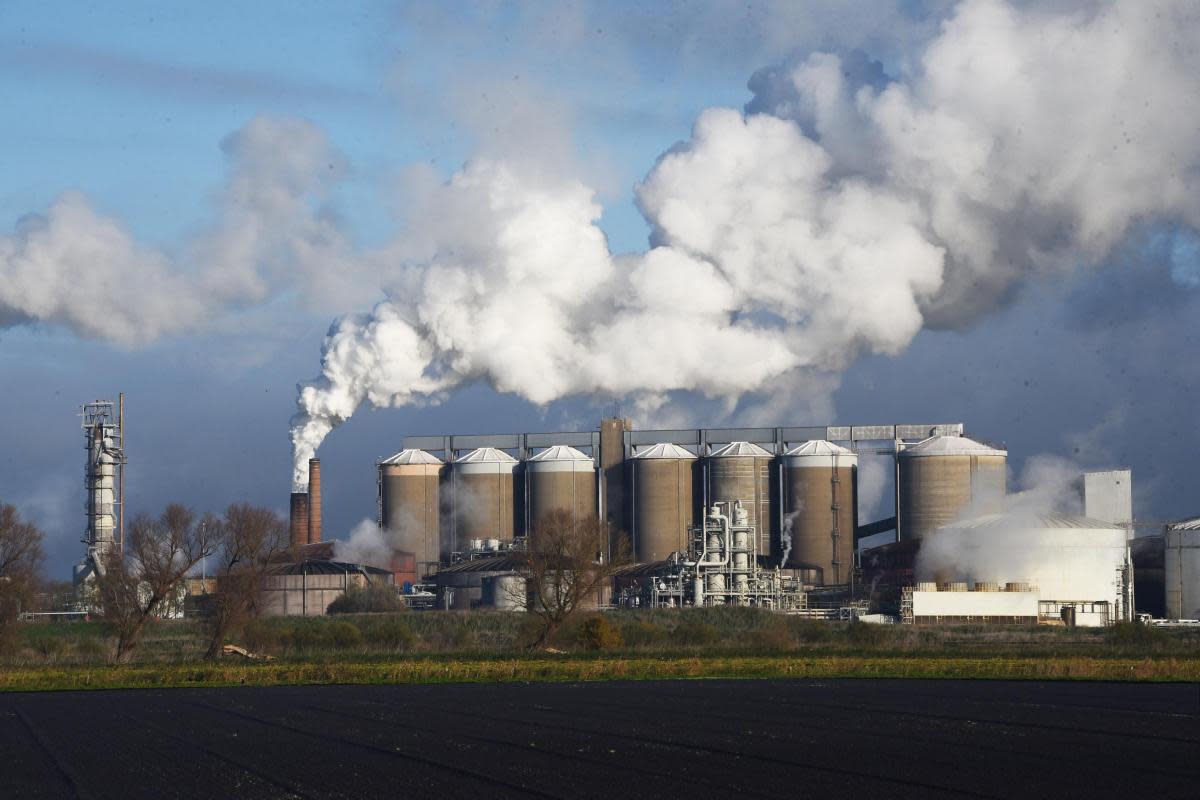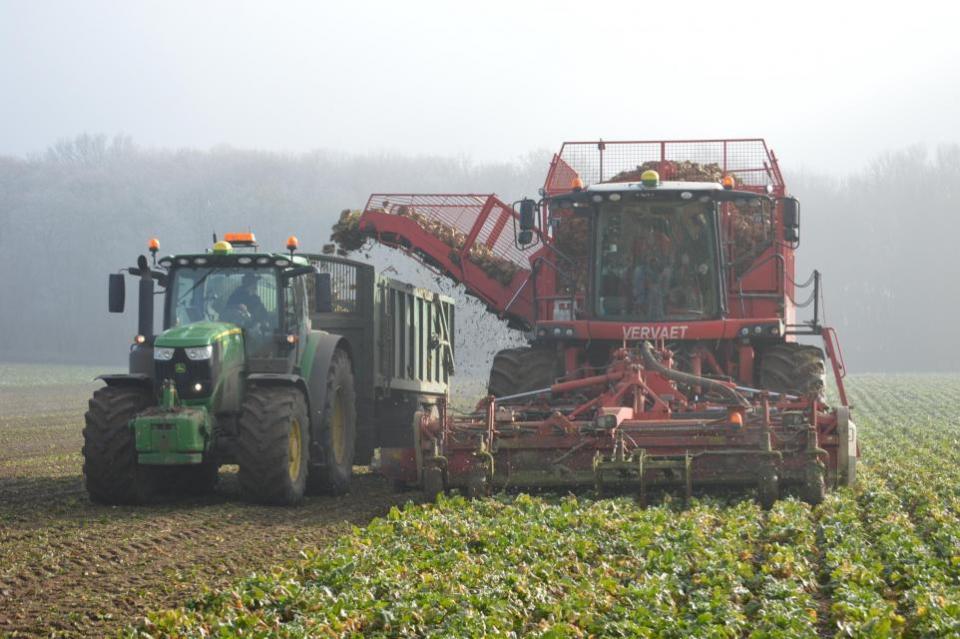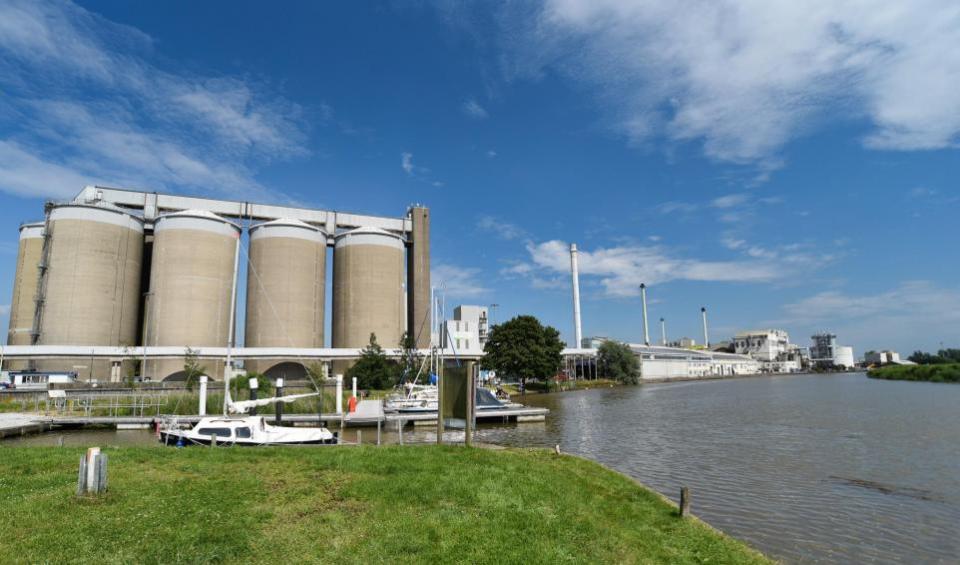Records broken at sugar factories after difficult beet harvest for farmers

Records have been broken at British Sugar's factories after the completion of a prolonged and rain-soaked beet harvest.
The company says its 2023/24 campaign finally concluded when its factory at Cantley, on the Norfolk Broads, sliced its last sugar beet on April 19.
In total, British Sugar’s four factories have processed more than eight million tonnes of beet since September, producing about 1.1m tonnes of sugar.
The record-breaking campaign was one of the longest in history, totalling 228 days.

Sugar beet harvesting in Norfolk (Image: Newsquest)
It coincided with one of the wettest winters on record, which bogged down the beet harvest on East Anglian farms and delayed deliveries to the processor.
But British Sugar has hailed the efforts of growers and contractors - and praised the performance of its factories, where several records were broken.
Wissington in west Norfolk experienced its second largest campaign, processing more than 3.1m tonnes of beet, while Newark in Nottinghamshire is thought to have completed the longest campaign in Europe, totalling 217 days, and Bury St Edmunds in Suffolk achieved a record for maintaining a "premium slice rate" over a period of 69 days.

Daniel Green, agriculture director for British Sugar (Image: British Sugar)
Dan Green, agriculture director for British Sugar, said: “We have just concluded one of our longest ever campaigns.
"It has been challenging for the whole industry given the amount of rainfall this winter and we want to recognise the effort our growers, harvesting contractors and hauliers have made to deliver this year’s crop into our factories.
"We are delighted with how well the factories have run over the campaign, showing that the investments we continue to make as a business ensure we are one of the most efficient processors of beet in Europe.”
Those efficiency investments included the commissioning of a £17.5m new evaporator at Wissington in autumn 2023, which reduced carbon dioxide emissions by 25pc during this winter's campaign.
Meanwhile, a supplementary boiler was hired and commissioned to help the Cantley factory process a million tonnes of sugar beet - part of a series of measures implemented to help farmers complete this winter's difficult campaign.

The British Sugar factory at Cantley (Image: British Sugar)
The "multi-million-pound support package", also included slowing down processing to extend the delivery window for farmers, and paying 75pc of the additional costs for growers to divert their crops to Cantley or Newark after the factories at Wissington and Bury St Edmunds had closed for the season.
Further investments are planned for future years, including steam drying facilities at Wissington which will "hopefully be commissioned for the 2026/27 campaign, with the potential to reduce site CO2 emissions by a further 50,000 tonnes per annum".
The firm also hopes new evaporators at Bury St Edmunds will be ready for the 2025/26 campaign to remove 20,000 tonnes of CO2 emissions, and Cantley is scheduled for upgrades to CHP (combined heat and power) and water treatment plants.
Despite the challenges of this year's wet spring and the threat of virus yellows disease, Mr Green said he was "optimistic about the coming season".
Although this is the fourth year in a row where seed drilling has taken place during mid-spring, he said all sugar beet is expected to be planted by the end of April.
"The crop area will be over 100,000 hectares, slightly ahead of last year," he said.
"Providing we have some favourable weather during the summer, we expect to see some good crops, good yields and some good margins for our growers," he said.
"This should encourage further investment in the industry, which is what we all want for the long-term."

 Yahoo News
Yahoo News 
